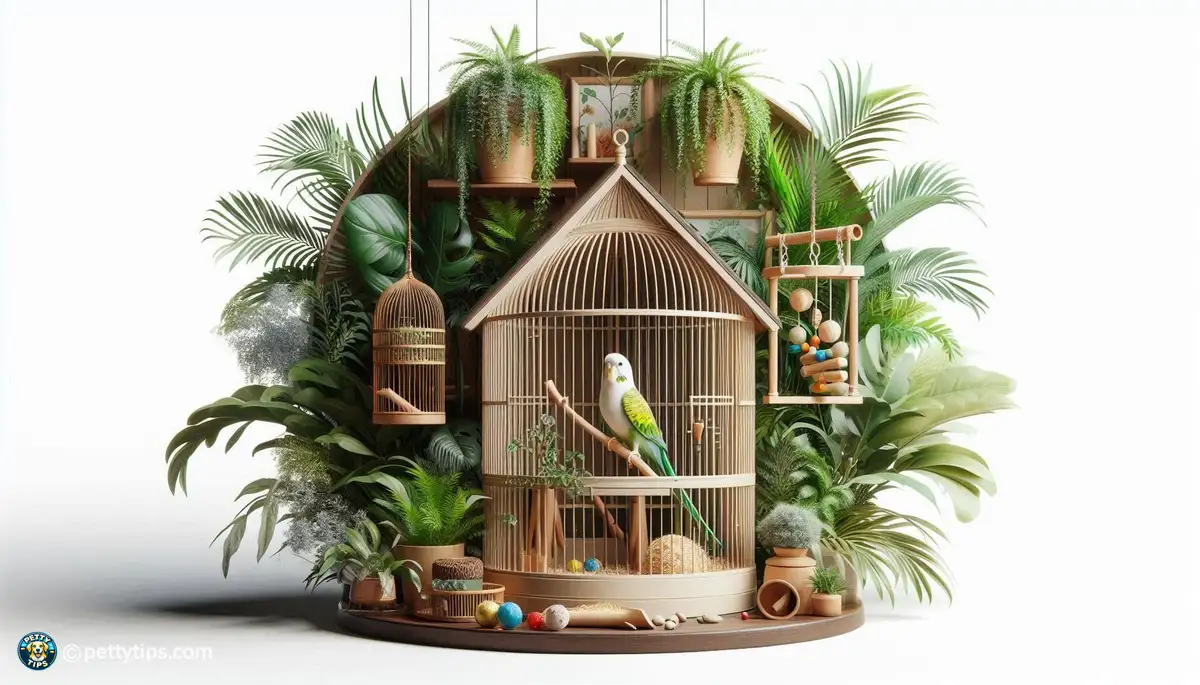Creating a Safe Environment for Your Pet Bird

Knowing Your Bird's Species
Understanding the specific needs of your bird's species is crucial in providing a safe environment. Different species have different dietary requirements, cage sizes, and social needs. For example, while some birds thrive in pairs or flocks, others prefer solitary living. Researching your bird's species will help you cater to their needs more effectively.
Providing Proper Nutrition
Nutrition plays a vital role in the overall health and well-being of your pet bird. Ensure you offer a balanced diet consisting of high-quality pellets, fresh fruits, and vegetables. Avoid feeding your bird foods that are toxic to them, such as chocolate, avocado, or caffeine. Additionally, provide clean, fresh water daily to keep your bird hydrated.
Creating an Enriched Environment
Birds are intelligent creatures that require mental stimulation to prevent boredom and behavioral issues. Offer a variety of toys, perches, and climbing structures in their cage to keep them engaged. Rotate toys regularly to maintain novelty, and provide opportunities for exploration outside of the cage in a safe and supervised environment.
Designing a Safe Cage
Choosing the Right Cage Size
Selecting an appropriate cage size is essential for your bird's physical and psychological well-being. The cage should be large enough to allow ample room for movement and wing stretching. Consider the size of your bird's species when choosing a cage, and opt for the largest one you can accommodate in your space.
Ensuring Proper Cage Placement
The location of your bird's cage can impact their health and happiness. Place the cage in an area with moderate temperatures and adequate airflow, away from drafts and direct sunlight. Avoid placing the cage in or near the kitchen, as cooking fumes can be harmful to birds. Additionally, position the cage at eye level to encourage social interaction and bonding.
Cage Maintenance
Regular cage maintenance is essential for creating a safe and hygienic environment for your pet bird. Clean the cage and accessories weekly, using bird-safe cleaning products to remove any droppings, food debris, or bacteria. Replace soiled bedding and toys as needed, and inspect the cage for any signs of wear or damage that could pose a safety hazard.
Providing Veterinary Care
Finding an Avian Veterinarian
Establishing a relationship with an avian veterinarian is crucial for your bird's health care needs. Look for a veterinarian experienced in treating birds who can provide regular check-ups and emergency care when needed. Schedule annual wellness exams to monitor your bird's health and address any concerns promptly.
Recognizing Signs of Illness
It's essential to familiarize yourself with the common signs of illness in birds, as they can often hide symptoms until they are seriously ill. Monitor your bird's behavior, appetite, and droppings for any changes, and seek veterinary attention if you notice anything unusual. Early detection and treatment are key to ensuring the best possible outcome for your bird's health.
Preventive Measures
In addition to regular veterinary care, there are preventive measures you can take to keep your bird healthy. Provide a clean and hygienic environment, maintain a balanced diet, and avoid exposing your bird to potential hazards such as toxic plants or household chemicals. regular exercise and mental stimulation are also essential for promoting overall health and well-being.
Supervising Out-of-Cage Time
Supervised Exploration
Allowing your bird out of their cage for supervised exploration is beneficial for their physical and mental health. Create a bird-proofed area in your home where your bird can safely stretch their wings and explore their surroundings. Remove any potential hazards such as open windows, electrical cords, or toxic plants.
Training and Socialization
Use out-of-cage time as an opportunity for training and socialization with your bird. Teach them basic commands such as "step up" or "come here," and provide positive reinforcement with treats and praise. Socialize your bird with family members and other pets in a controlled environment to help them feel more comfortable and confident.
Monitoring Behavior
While supervising your bird out of their cage, pay close attention to their behavior and body language. Watch for signs of stress, fear, or aggression, and intervene if necessary to prevent any conflicts or injuries. Provide plenty of positive reinforcement and praise for good behavior to strengthen your bond with your bird.
Creating a Safe Outdoor Space
Outdoor Enclosures
Providing your bird with access to outdoor enclosures can offer them the opportunity to experience natural sunlight and fresh air safely. Ensure the enclosure is secure and predator-proof, with sturdy walls and a secure roof to prevent escapes or attacks. Provide plenty of perches, natural foliage, and sheltered areas for your bird to explore and enjoy.
Sun Exposure
While natural sunlight is beneficial for birds, it's essential to monitor their exposure to prevent overheating or sunburn. Offer shaded areas within the outdoor enclosure where your bird can retreat from direct sunlight when needed. Provide fresh water to keep them hydrated, and consider using a misting system to help them stay cool on hot days.
Supervised Outdoor Time
When allowing your bird outdoor time, always supervise them closely to ensure their safety. Keep an eye out for potential predators such as cats, dogs, or birds of prey, and intervene if necessary to protect your bird. Avoid leaving your bird unattended outdoors, and bring them back inside at the first sign of inclement weather or other hazards.
Conclusion
Creating a safe environment for your pet bird requires careful consideration of their species-specific needs, cage design, veterinary care, out-of-cage time, and outdoor exposure. By understanding your bird's requirements and taking proactive measures to address them, you can provide a happy and healthy life for your feathered friend. Remember to prioritize their well-being and safety at all times, and enjoy the rewarding experience of pet bird ownership.
